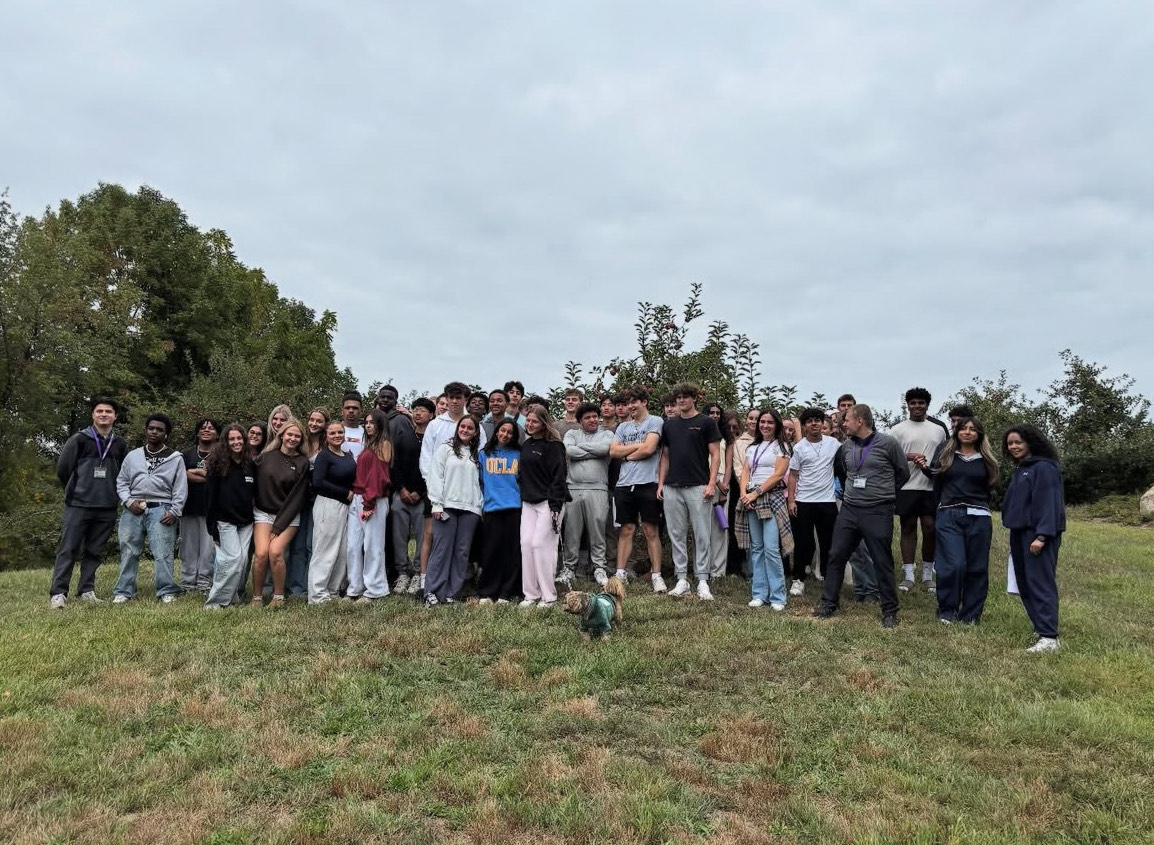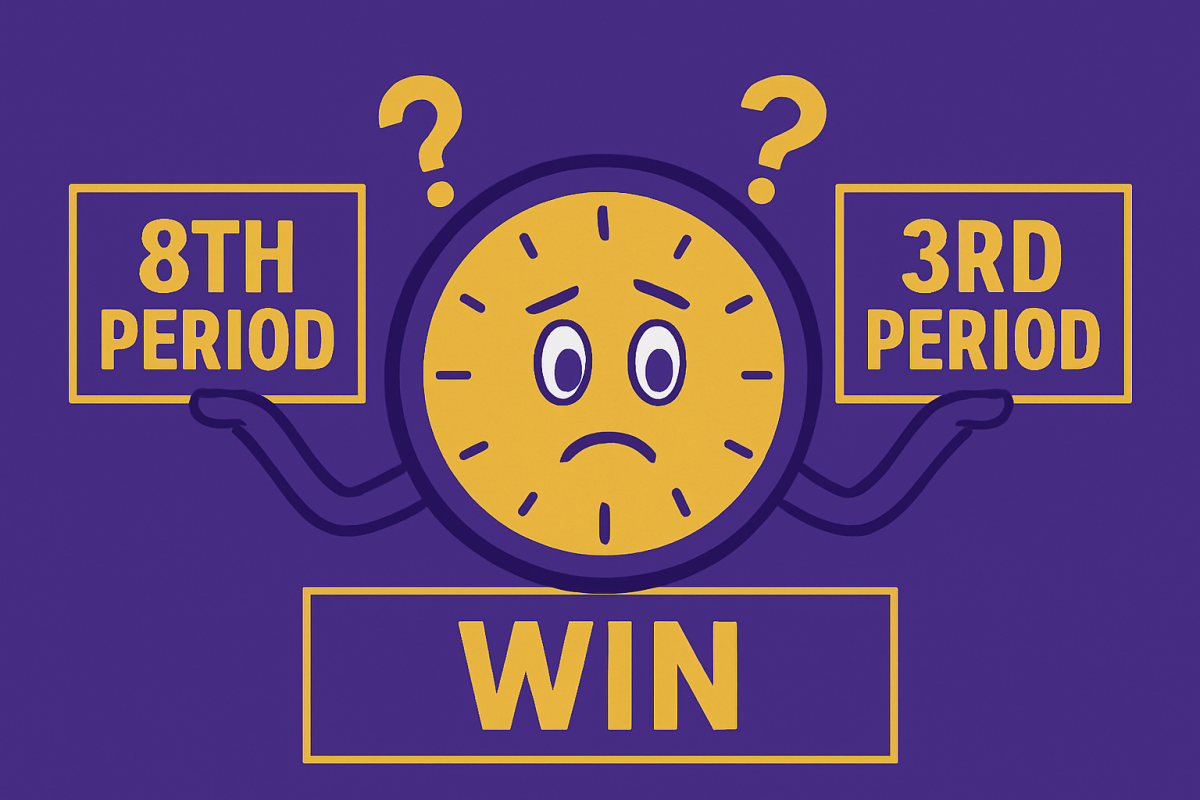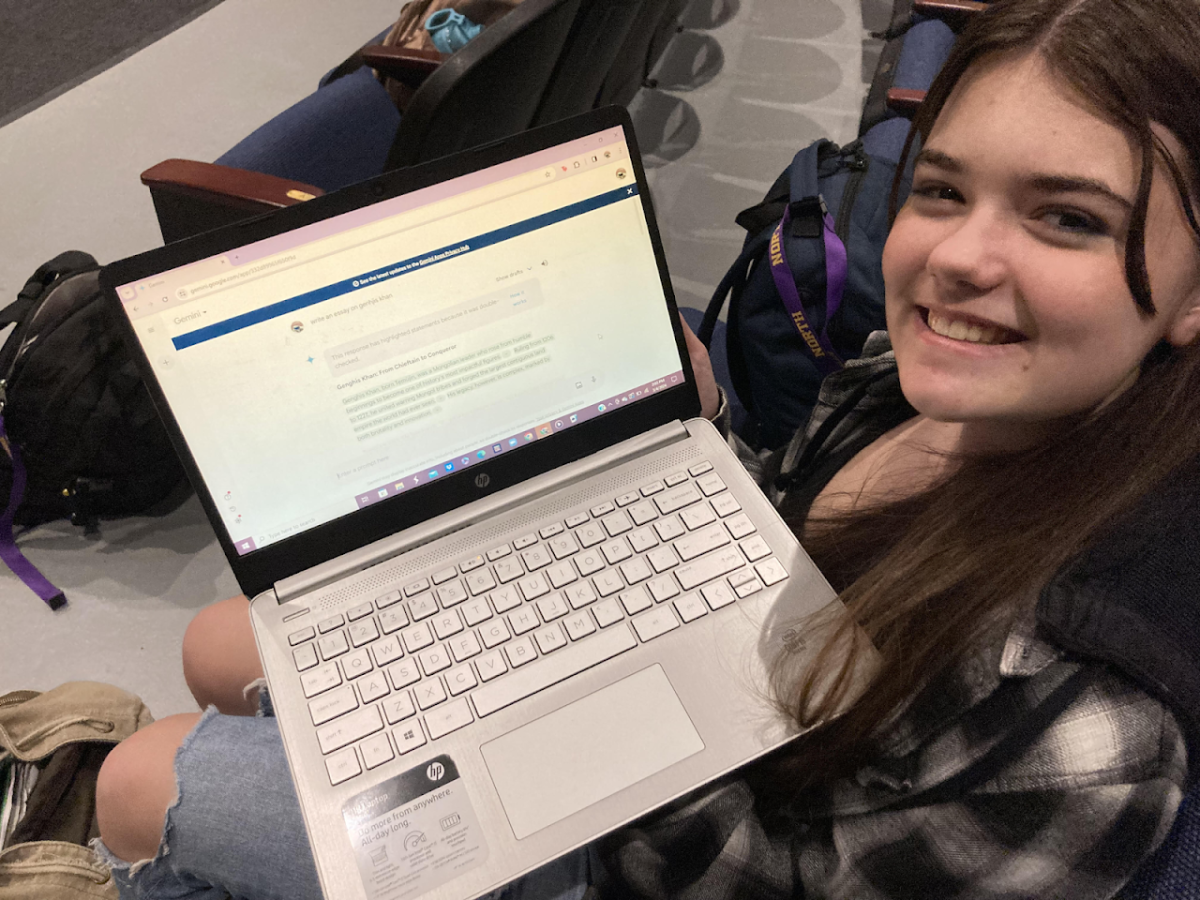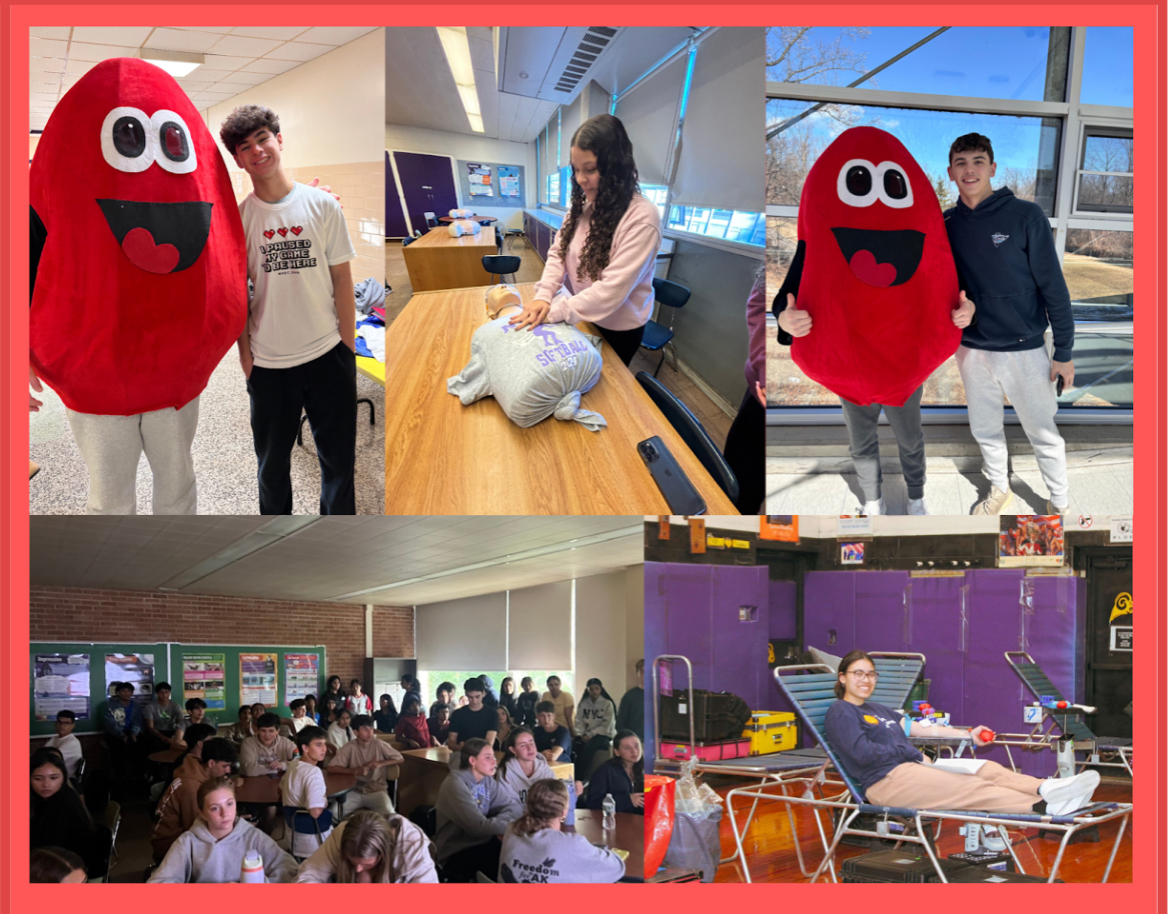In education, specifically high schools, the issue of artificial intelligence (A.I.) has raised endless questions. How should schools regulate the use of artificial intelligence? How can abuse of these new technologies be stopped? Can teachers and students alike benefit from artificial intelligence? These questions must be answered soon in order to determine how education can continue as these new technologies continue to advance.
With all of these burning questions about A.I. in the news and in the air, one thing is clear: A.I. cannot be banned. The world of education must find a way to work with and around it since they cannot work against these programs. In order to explore why A.I. cannot be banned, let’s take a look at what schools, especially Clarkstown High School North, have done.
While “[s]ome schools responded… by banning ChatGPT and tools like it” (NYT), North has not officially banned artificial intelligence because it is essentially impossible. The schools that reacted by banning A.I. typically ended up rescinding their bans because it became clear that students everywhere would find ways to take advantage of A.I. for schoolwork.
Instead of a formal ban, the teachers at North have been working around artificial intelligence’s presence by altering assignments for their classes. Lauren Donnelly, a senior at North, said “I know there’s one teacher… she makes all her assignments handwritten because she had a problem with students using A.I.” In my personal experience and the experience of peers with whom I have discussed this topic, in-class English essays are now more commonly hand-written due to the threat of plagiarism through A.I abuse. According to Ms. Phalen, one of North’s English teachers, administration has “provided more A.I.-identifying tools for teachers, such as Turnitin.com” to help combat this issue as well. Mr. Morris, a physics teacher at Clarkstown North, gave some insight into how the science and math departments can combat A.I. abuse. For practice problems, he said he typically has “students solve these problems and write these explanations in class where [he] can monitor that cell phones and computers are not assisting with their responses.”
Behind the scenes, in order to help North’s teachers face the problems posed by A.I., administrators are still working on creating a district-wide policy for artificial intelligence use. According to Ms. Mazza, the district’s director of STEM and instructional technology, the district now provides options for artificial intelligence-based professional development, answers questions for teachers about how A.I. works, and “formed an A.I. working group, which is a group of teachers and administrators…from across the district… [to] gather broad and varied perspectives on how the use of A.I. could impact all schools.” Mr. Turner, a history teacher and department chair at North, said that a few teachers and administrators from North are on this committee, including him. These actions are important to the future of education at North because our teachers need to understand artificial intelligence before they figure out how to educate students with A.I.’s presence in the world.
Although it is clear that schools must combat A.I. abuse, can artificial intelligence be used to benefit education? As Mr. Morris said, “A.I. is here and we must adapt somehow.” Since it is clear that artificial intelligence cannot be banned from the world of education, the only thing to do with these new technologies is figure out how to use them in beneficial ways that will enhance education.
The issue with using A.I. as a tool for education is that many teachers still do not know much about artificial intelligence. Ms. Phalen believes that she knows “only a fraction of what [she] could know about A.I.!” According to an article from brookings.edu, “A nationwide survey of K-12 teachers revealed that 72% have not received guidance on generative A.I. use.” Without knowing how to utilize artificial intelligence and combat its abuse, teachers cannot continue to effectively educate their students. Hence why it is imperative that the administration continues to take actions to educate teachers, gather information, and work on policies relating to artificial intelligence. Once these efforts have progressed enough and spread knowledge to all of the Clarkstown teachers, the district can certainly use artificial intelligence to enhance the education experience for its students.
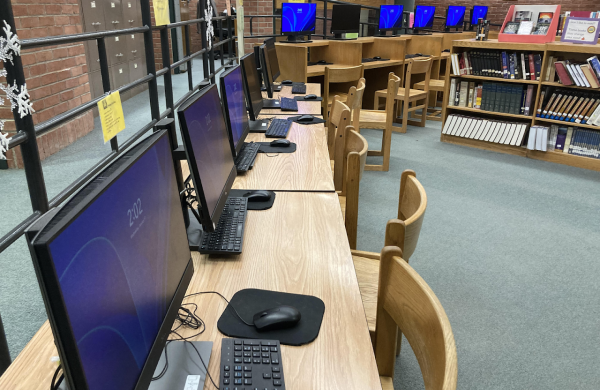
Computers in North’s Library
Image Courtesy of Finnegan Thompson
Now that we understand that A.I. can help education, what are some ways that that fact can manifest itself at North and other schools across the nation? STEM subjects seem to have straightforward ways to move forward with artificial intelligence, such as completing practice problems in class, using simulations created by A.I. to teach concepts, as well as introducing A.I.-powered tutors. In addition, artificial intelligence can save STEM educators’ time to create lesson plans and grade assignments and tests by formulating practice problems targeted toward specific class’s abilities and needs. The more pressing questions present themselves within the humanities, specifically English and social studies.
One of the clearest examples of how artificial intelligence can enhance classroom instruction, especially in the humanities, is by creating more accurate translations of classwork for ELL students, which both Ms. Phalen and Mr. Turner expressed enthusiasm about. Artificial intelligence’s ability to rewrite class materials also benefits teachers who teach multiple levels of a specific subject because this tool can rewrite articles and sources at different reading levels to be used for different classes, according to Mr. Turner. A.I. can also write sample essays quickly, with specific mistakes, and at different writing levels, which can be edited by students to help teach grammar and writing skills. An emphasis in class on discussions and analysis concerning literature can also help students build English skills without using artificial intelligence to come up with ideas for them.
Teachers should also teach students how to use A.I. as an effective tool, without cheating and learning nothing in the process. Mr. Turner claims to be a firm believer in this fact. Jessica Charalel, a senior at North, also thinks A.I. “can be helpful in some sense [because] using it as a study guide or to provide ideas for an essay… gives… more resources to work from.” Freshman Celeste Thompson agrees with the idea of using A.I. for studying, stating that “A.I. can be helpful for learning if students don’t understand something and can’t find a good explanation [online], but A.I. … can’t replace in person conversations or learning.” These functions of artificial intelligence are great, but must be taught to students in order to prevent them from abusing such tools. Ms. Mazza believes in the importance of “providing students with the opportunity to learn about A.I. so that they are… prepared to enter a world with A.I. when they graduate.” Although the “world with A.I.” is a difficult concept to comprehend and face, it is the reality, hence why it is so important that every student and teacher has a grasp on artificial intelligence as a tool, not something to abuse.
Beginning to answer these questions about artificial intelligence is important for the future of education and the future generations of the world. While there are no set answers to any of these questions, administrators and teachers must continue working to improve their understanding of artificial intelligence to form a picture of what education of the future will look like. The students of Clarkstown North are lucky that their teachers and administrators are making an effort to learn all that they can and adapt to the circumstances of A.I. in education. Hopefully teachers and administrators across the nation are working as hard to allow their schools to move forward with implementing these new technologies in ways that will enhance education and society as a whole.
Links used for research:
Students and Teachers Interviewed:
-
Mr. Turner
-
Ms. Phalen
-
Ms. Mazza
-
Mr. Morris
-
Jessica Charalel
-
Lauren Donnelly
-
Celeste Thompson


